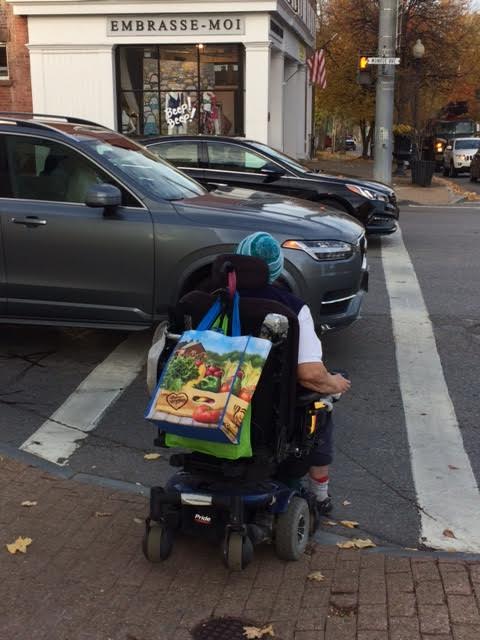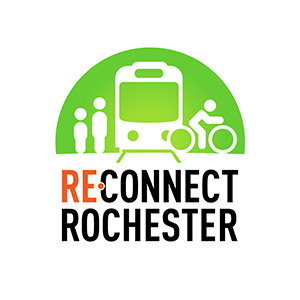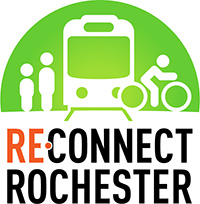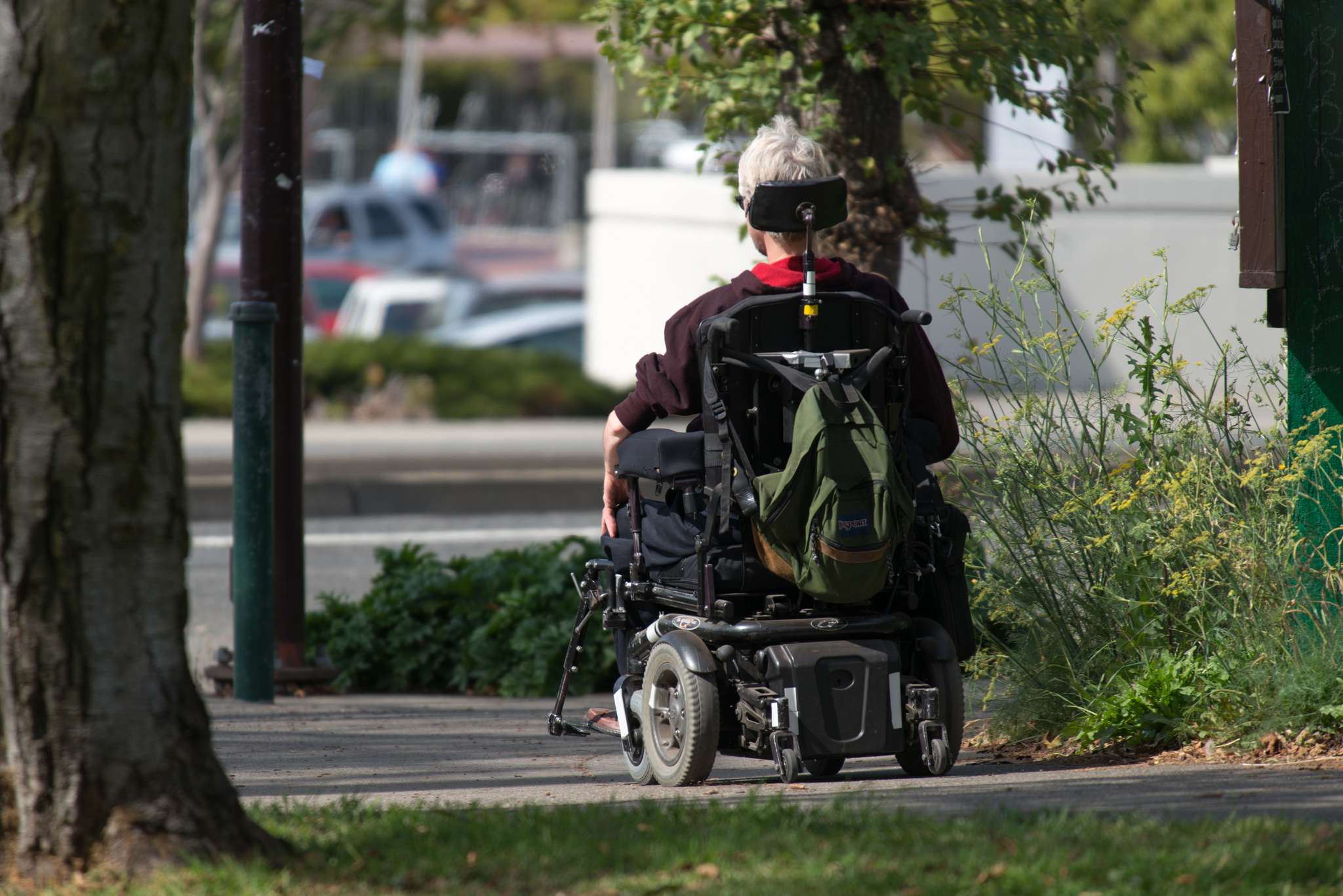Guest essay submitted by: Ericka Jones, Systems Advocate at Center for Disability Rights…
Imagine you found out Uber was coming to your town. The typical response is to be really excited and relieved that a lower cost and convenient ride service was coming to your area. You no longer have to deal with the stress of how you will get to work on time or if a ride is even available!
 Now imagine that you are part of a minority that ridesharing companies refuse to serve. Your community is excluded from this convenient and cheap service that everyone else gets to use. How would you feel? Not only that but drivers actively drive past you instead of stopping to pick you up. Would you call that discrimination? The disability community does. Uber has been fighting against any legislation that aims to force them to have accessible vehicles, as required by the Americans with Disabilities Act (ADA). Uber’s argument is that they are a technology company and since they do not own the vehicles (the drivers do), they are not forced to comply with the ADA.
Now imagine that you are part of a minority that ridesharing companies refuse to serve. Your community is excluded from this convenient and cheap service that everyone else gets to use. How would you feel? Not only that but drivers actively drive past you instead of stopping to pick you up. Would you call that discrimination? The disability community does. Uber has been fighting against any legislation that aims to force them to have accessible vehicles, as required by the Americans with Disabilities Act (ADA). Uber’s argument is that they are a technology company and since they do not own the vehicles (the drivers do), they are not forced to comply with the ADA.
Not only is Uber’s refusal to provide accessible vehicles an insult to our community, but then Uber has attempted to divide us by reaching out to the National Association of the Deaf. This is in an effort to recruit members of the Deaf Community as Uber drivers. So, Uber is sending the world a message of acceptance for some disabled folk but not all.
Not convinced yet? What if I told you that now Uber is arguing that they can usually accommodate for manual wheelchair users but NOT for power chair users because they “can’t force people to own accessible vehicles”? Does this seem like fair or equal treatment? Even in times that they DO offer wheelchair accessible vehicles (WAV) service, they will contract out with another local medical transportation company and Uber charges the rider a higher fee to cover the cost of having to rent another company’s vehicle. Why wouldn’t the rider instead just go directly to that other transportation company rather than call Uber? Because medical transportation vehicles are typically meant for just doctors appointments and visits to the hospital.
And then there are the abusive practices Uber drivers have been known for in the past like putting service animals in the trunk or in the case of Tiffany Jolliff, a blind woman who owns a service dog, was dragged several feet after a driver refused to allow her service dog into the car. As she was trying to enter the car, the driver accelerated and started to drive off causing Jolliff to trip and injure her shoulder. Uber has been sued over 60 times, but perhaps the more famous suit was from the National Federation of the Blind of California. Plaintiffs alleged that drivers “seriously mishandled guide dogs”, “harassed blind customers with guide dogs” or outright refused to transport many blind individuals who use service animals.
With all of this mistreatment of the disability community, is this really a company we want operating where we live? I say no. But if you are still thinking “Ericka… this doesn’t affect me! Why should I have to miss out on Uber service?!” Well I’ll tell you, concerned citizen. Maybe this doesn’t affect you right now, but someday we could all become disabled and find barriers to access.
You might find yourself with some sort of disability waiting for transit on a snowy day with the rest of us because no one will pick you up. Or you might even know or care about someone with a disability. If not you, would you tell a loved one #sorrynotsorry, that you will be using Uber to go out and about? Would you drive away while watching them through the rear view window sitting there with a devastated look on their face because they know they are being excluded? You know how they will most likely spend their evening? Trapped in their home eating junk food and watching bad TV instead of spending a night out with someone they care about. Would you be okay with this scenario then?



Unfortunately, the writer has some of the same misconceptions about Uber that most people do.
No, Uber is NOT (“NOT”) a lower-cost alternative to taxis. Is NOT. Uber has advanced this notion, and people have accepted it, even as Uber runs its surge pricing algorithm. Uber has always refused to publicize the data, or to provide accurate extrapolations from what they retain, but I am absolutely convinced that, when averaged, Uber’s prices are higher per mile than most local taxis. (There are now a couple of lawsuits in the works that may force Uber to disclose the true data, and I am confident that will debunk yet another of its many fallacious claims.)
You are absolutely correct. Uber is a lowlife operation. A “technology company?” (BULLSPIT!) There isn’t a force of independent drivers looking to hook up with Uber’s “technology” unless Uber builds them. They treat their drivers terribly, their turnover is astronomical, and they can only maintain the number of cars on the street by paying bloated bonuses and incentives, or at least promising them. (They just settled yet another lawsuit last week with the FCC, paying out $20 million for their false claims about driver earnings.)
Yes, in most communities, local taxis are required to provide at least minimal service to those in wheelchairs, using scooters, etc. I used to drive a wheelchair van in Reno, and I can attest to the fact that there is a real need for this service, and specialized vehicles are a necessity.
Handicapped people are definitely not the only people who are underserved or just disserved by Uber and its traveling Snake Oil Carnival. Sometime, down the road (no pun intended), the public will have one of those “epiphany” things about the whole Uber farce. Sadly, by then, many small, independent taxi businesses will have been completely destroyed, and Uber will be the only game in town. What do you figure you’ll be paying then?
I’m interested in providing a solution for the use of Uber in Rochester for those who use wheelchairs. Can anyone direct me to who would know if the following vehicle would be preferable or are there others they would recommend ?
http://www.advancemobilityplus.com/vehicles/ambuletteswheelchair-vans
Hi Tom, Contact Ericka Jones (ejones@cdrnys.org) at the Center for Disability Rights and she’ll be able to help.
Plans are in the making to have a ADA approved [vehicle] available. Please follow the link, share the link and donate… https://www.gofundme.com/rideshare-powermanual-chair-user
Thank you
Handicapped people are definitely not the only people who are underserved or just disserved by Uber and its traveling Snake Oil Carnival